keeping up with regulations
Regulatory Compliance Solutions
Solutions designed to help you comply with a range of ABAC, ESG, and modern slavery regulations. Build effective programs, and screen, assess, and remediate risks across your extended enterprise.

Comply with Confidence
You have an ever-growing, ever-evolving list of regulations your enterprise needs to comply with, yet no additional resources. GAN Integrity provides the workflows, integrations, and tools you need to keep on top of ABAC, ESG, and modern slavery compliance requirements. Our low-code platform is incredibly flexible, easily adapting to your specific program requirements, governance framework, and risk appetite. And the best part? We’re with you every step of the journey.
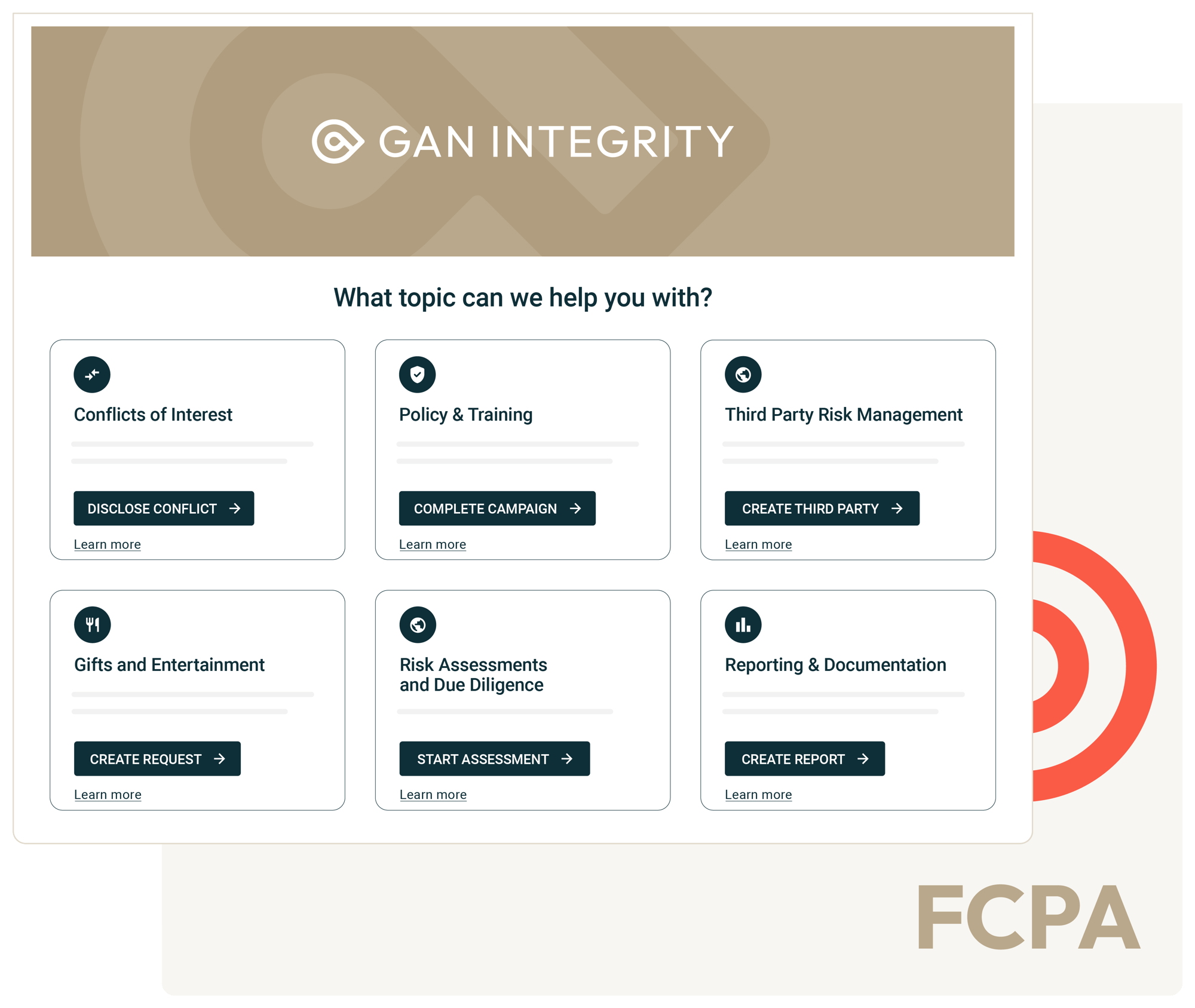
FCPA Compliance
Implement ABAC policies and training, capture conflicts of interest and other disclosures, and screen and assess third-party risks.
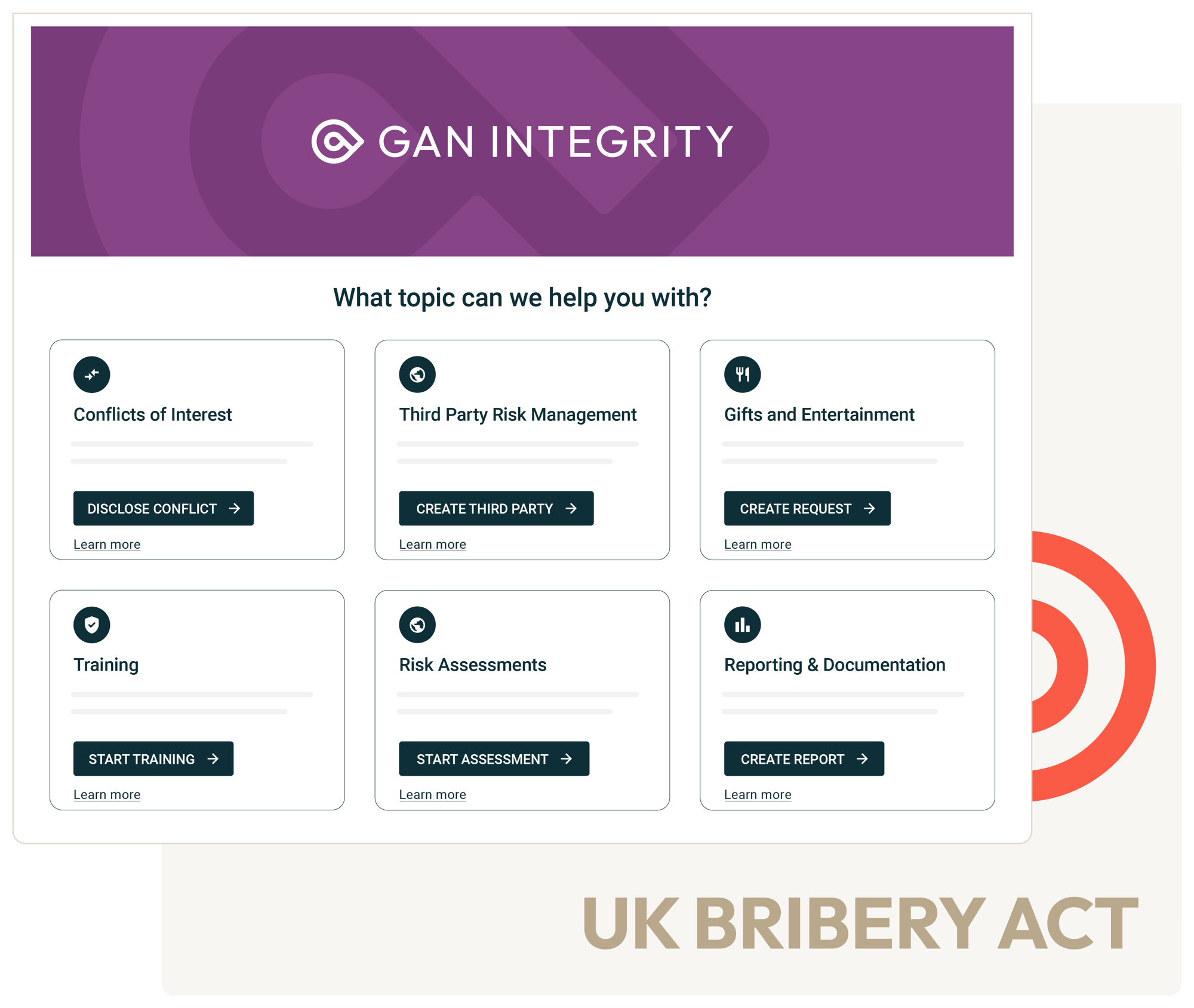
UK Bribery Act
Implement ABAC policies and training, capture conflicts of interest and other disclosures, and screen and assess third-party risks.
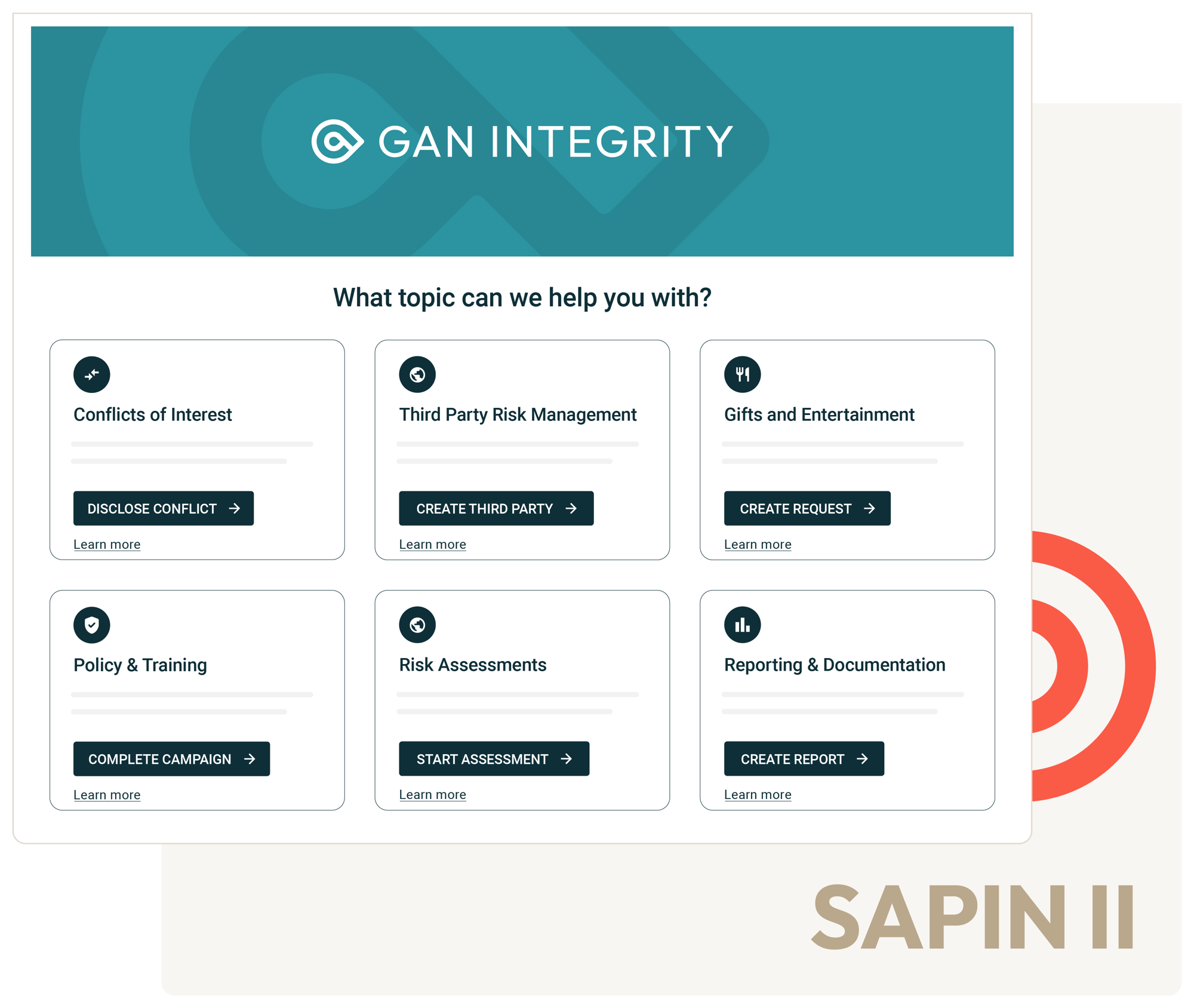
Sapin II Compliance
Implement ABAC policies and training, capture conflicts of interest and other disclosures, and screen and assess third-party risks.
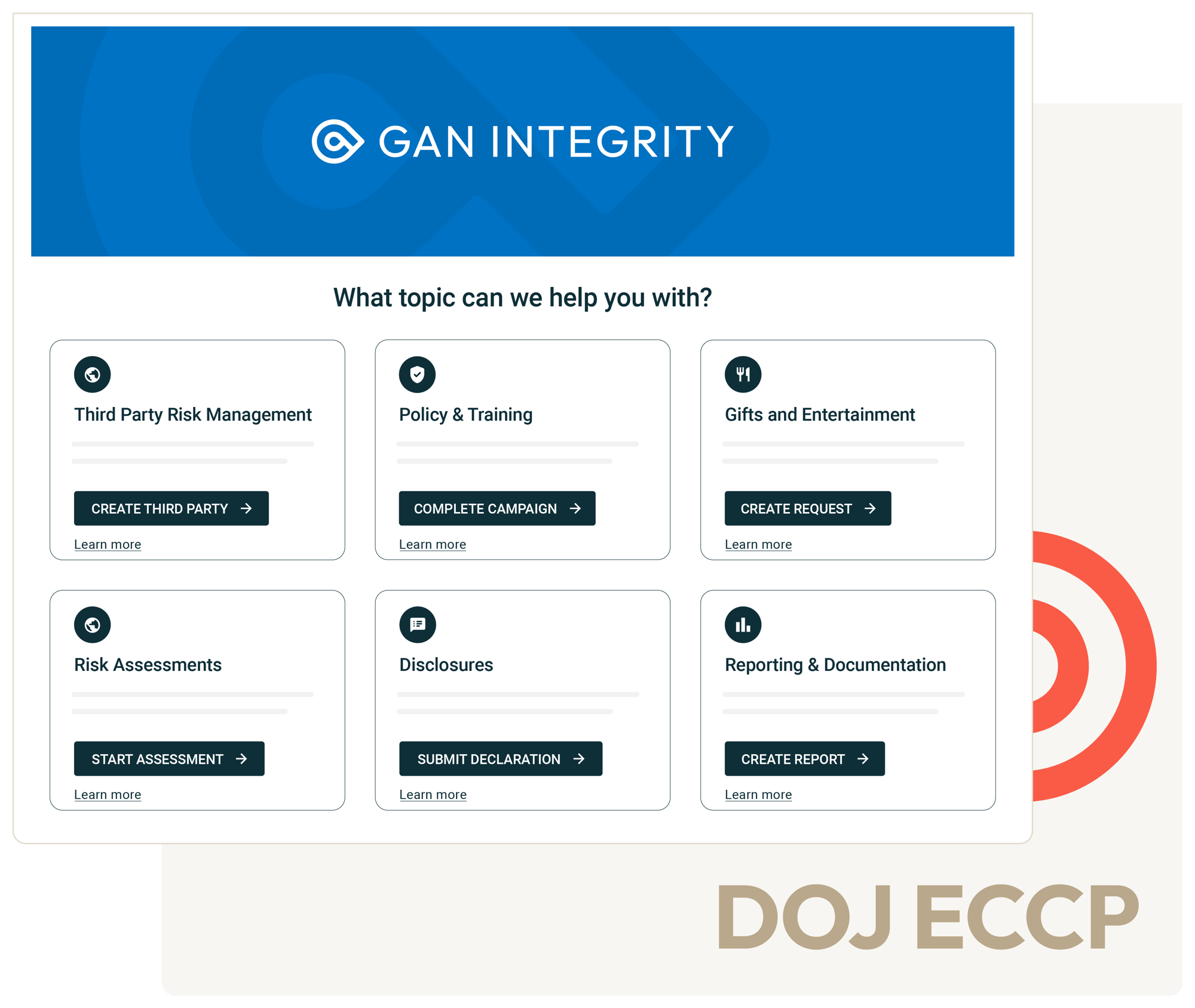
DOJ Guidelines (ECCP)
Align your program with the DOJ Guidelines for the Evaluation of Corporate Compliance Programs and demonstrate effectiveness.
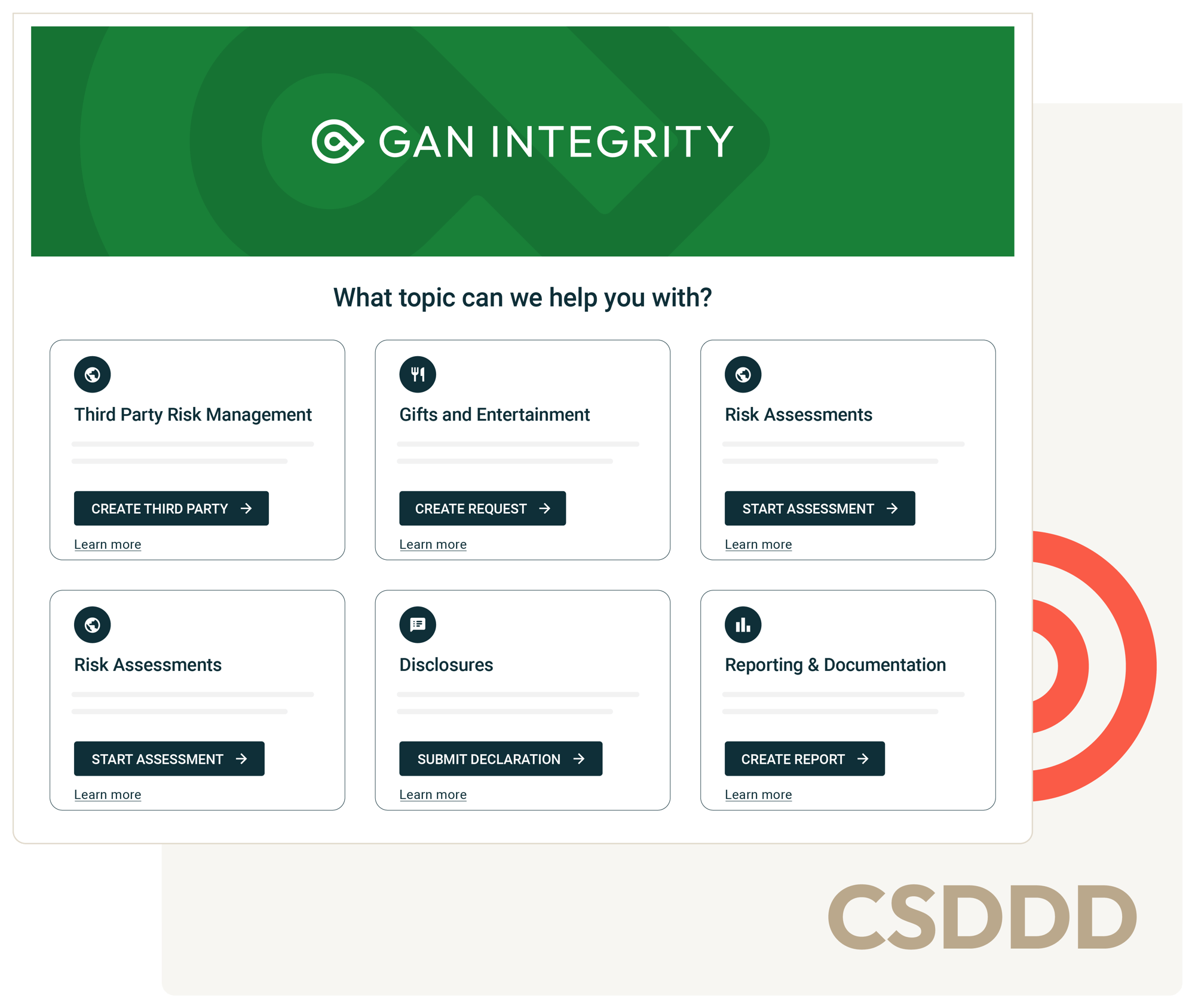
CSDDD Compliance
Screen, assess, and remediate environmental, human rights, and other ESG risks across your extended enterprise.

LkSG Compliance
Screen, assess, and remediate environmental, human rights, and other ESG risks across your extended enterprise.
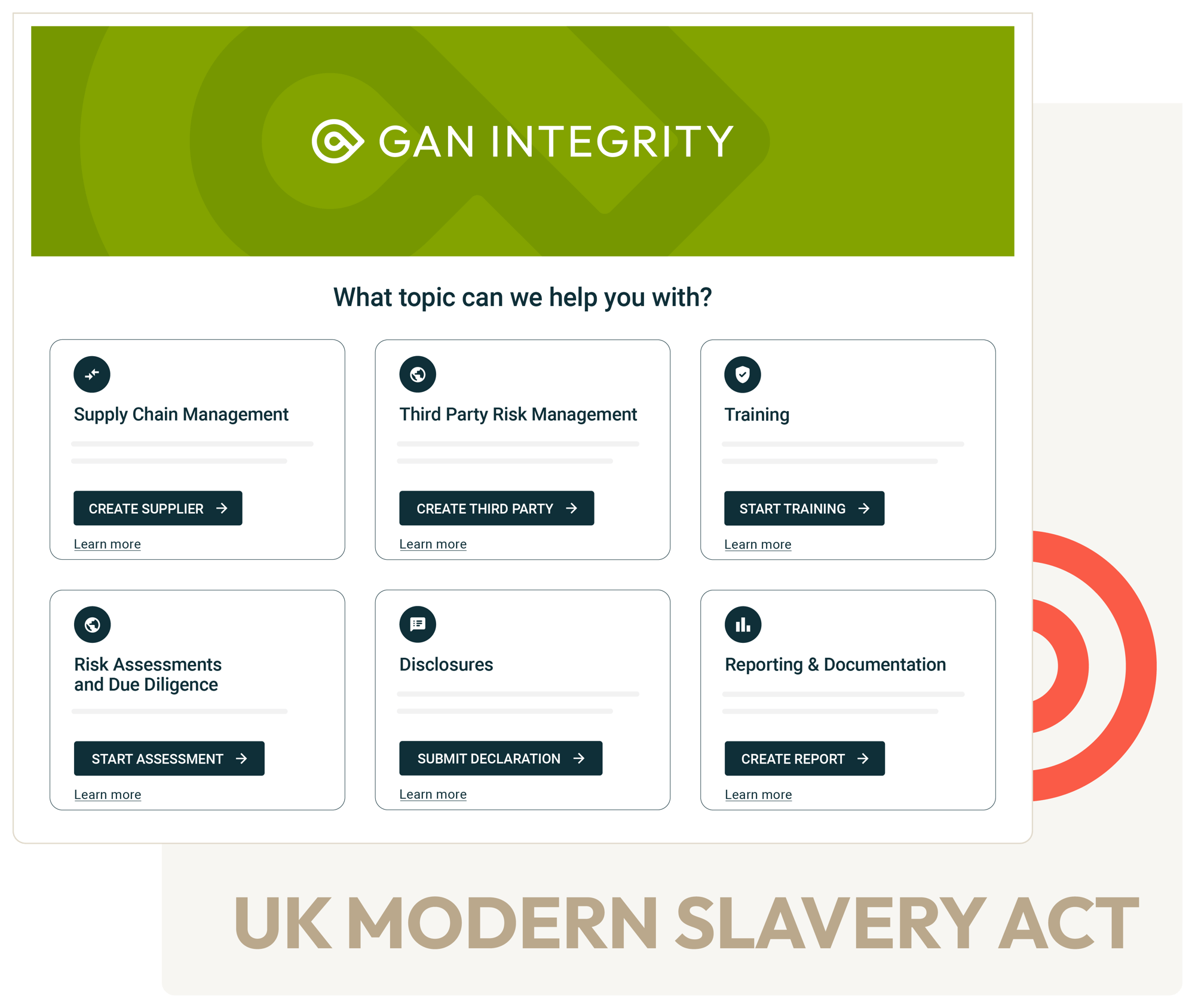
UK Modern Slavery Act
Implement policies to prevent modern human slavery, and apply due diligence and risk assessments for an abuse-free supply chain.
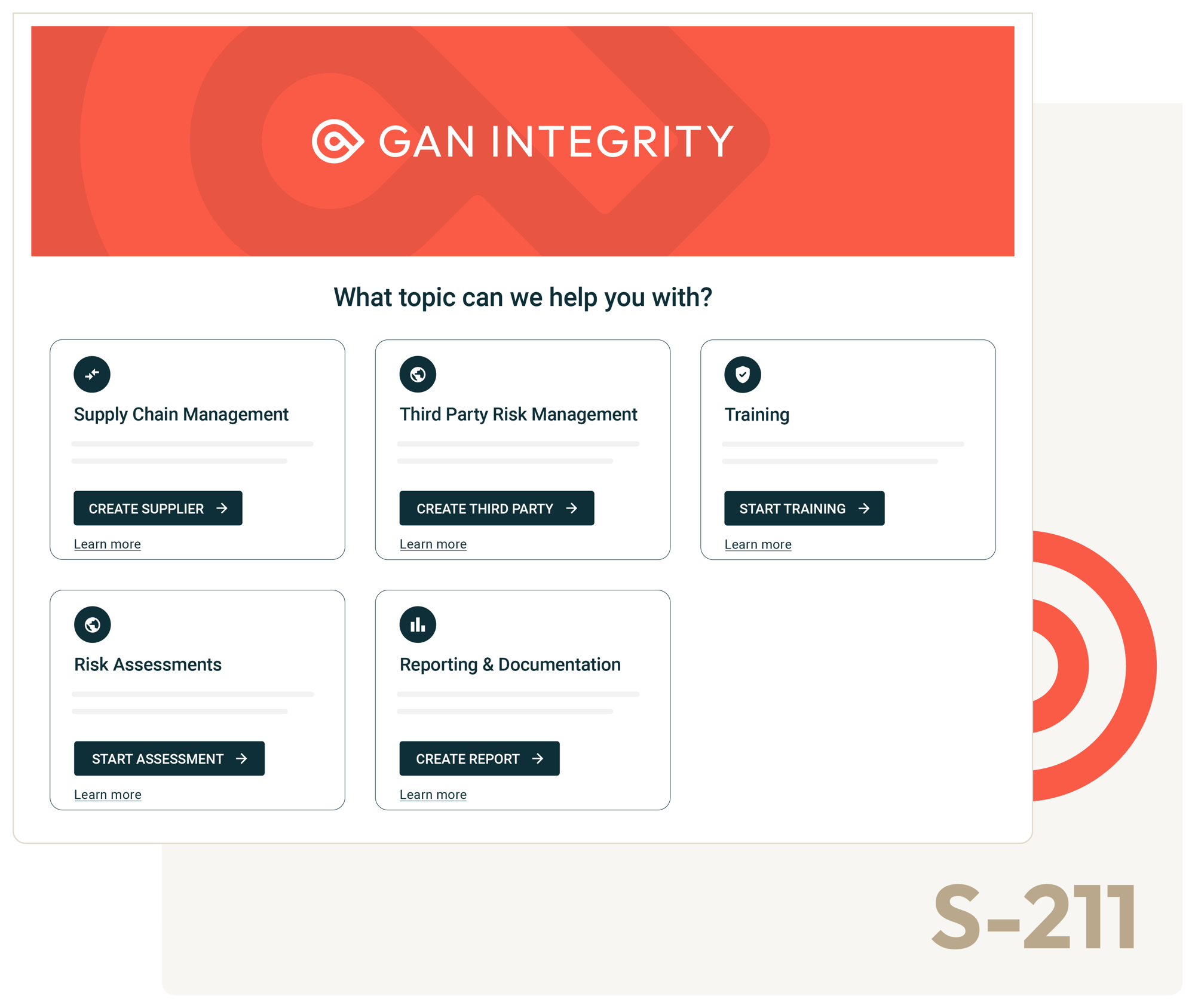
Bill S-211
Implement policies to prevent forced and child labor, and apply due diligence and risk assessments for an abuse-free supply chain.
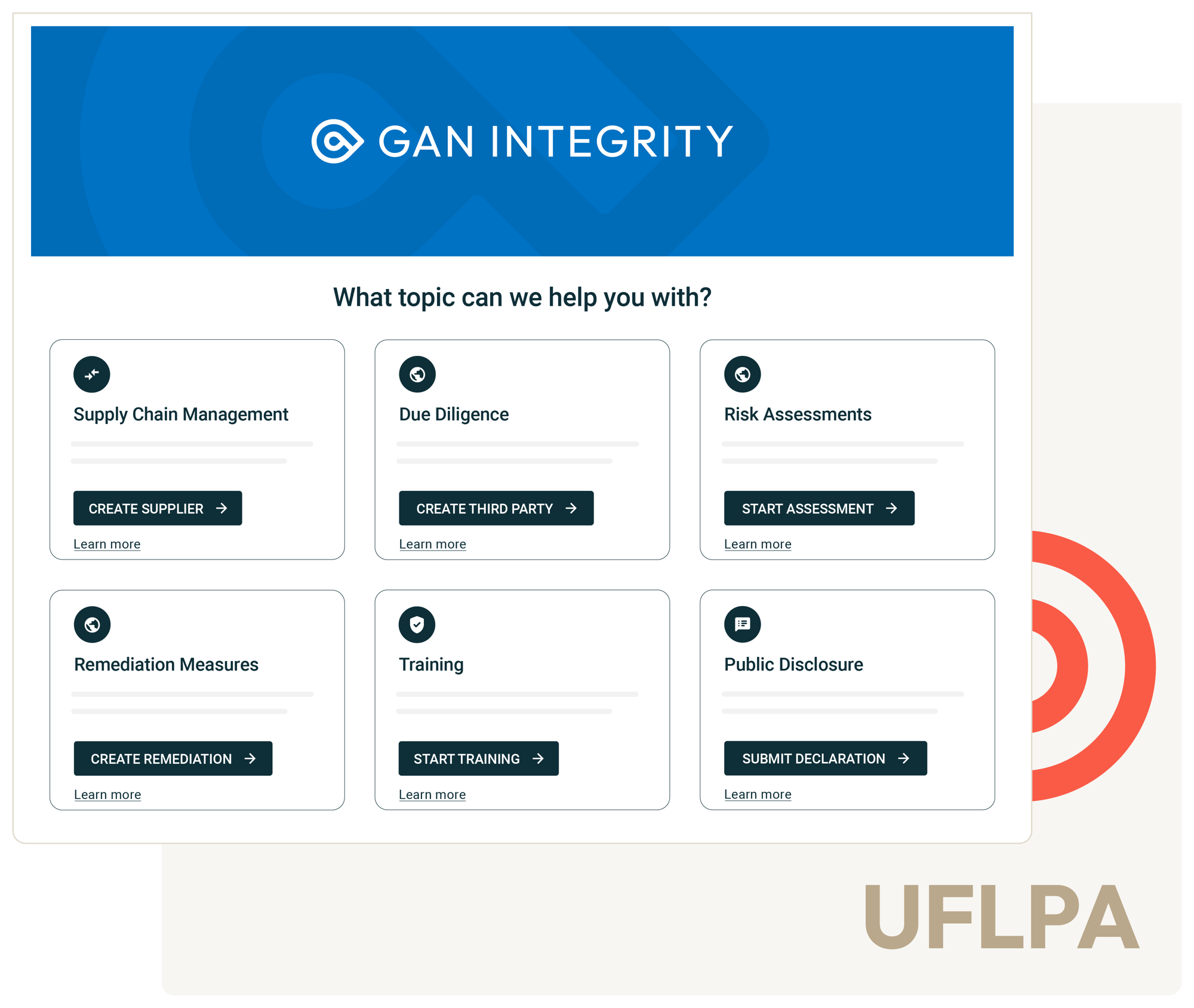
Uyghur Forced Labor Prevention Act
Implement processes to prevent the importation of goods made with forced labor from the Xinjiang Uyghur Autonomous Region.
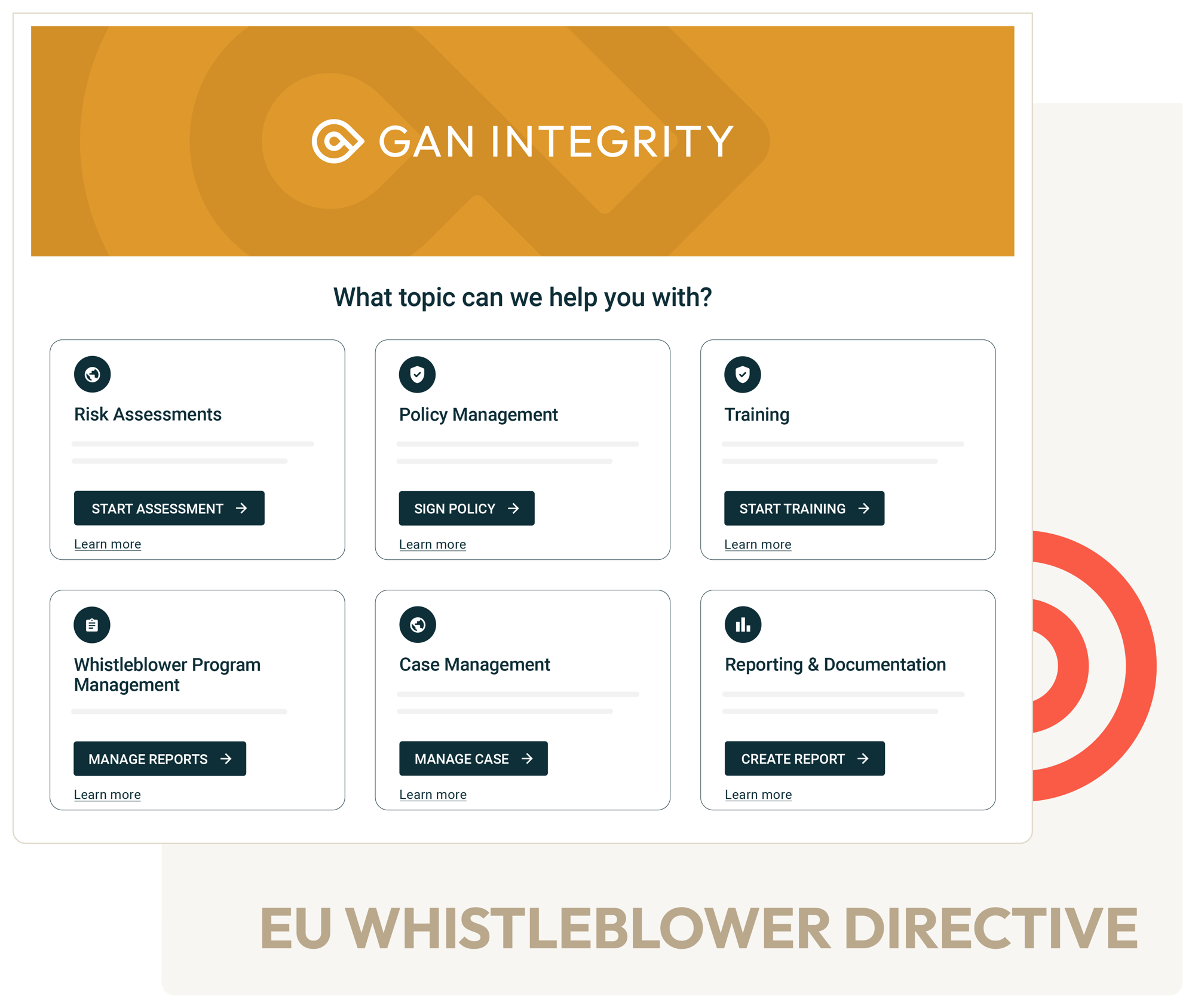
EU Whistleblower Directive
Ensure you have robust and effective policies and procedures in place to protect whistleblowers and address their reports.
